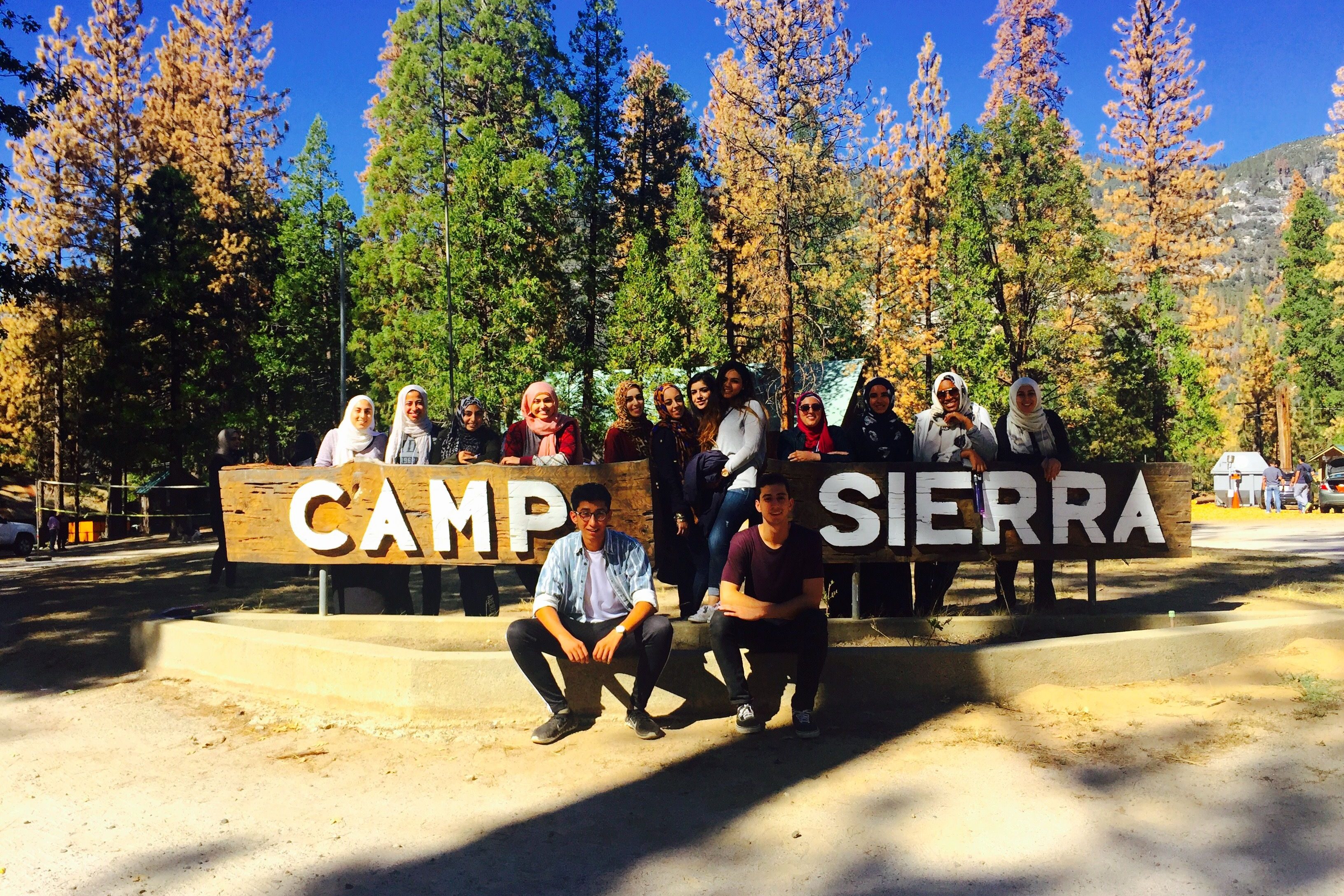The theme of Tajdeed Retreat this year was “Clarity in Consciousness: Achieving Taqwa By Knowing Your Lord”. Throughout the weekend of October 9th to the 11th, 2015, students from across the state came together to listen to thought-provoking talks and learn from beloved teachers Imam Yama Niazi, Ustadha Lobna Mulla, and Imam Jihad Saafir, discuss the fundamental meaning of taqwa and attaining closeness to Allah swt, and renew the love and appreciation for His creation by being in the beautiful setting of the Sierra Forest. Below is a compilation of gems and lessons from Tajdeed Retreat taken by students who were blessed to attend. (These snippets were taken from an attendee’s notes, as well as from a “Gem Board” present at Tajdeed Retreat where students were able to post gems from the weekend)
“Taqwa” comes from the term “wiqayah”, which means “protection”. -‒ To have taqwa is to protect and guard one’s self from all things that can harm us in this world and in the next world.”
“Taqwa is obedience. We strive to have taqwa by obeying all of the commands of Allah swt, both inward and outward, and avoiding all the prohibitions of Allah swt, both inward and outward.”
“Taqwa is not lots of salah, sawm, zakat, or other acts of worship…..taqwa is obeying Allah swt, and It is crucial to beware of “Taqwa-Al Shirk” -‒ using acts of worship to seek the pleasure of those other than Allah swt. This is a huge and sad reality, where individuals engage in acts of worship, partially to be seen by others and gain a reputation for being pious.”
“Having taqwa is to see Allah swt is the provider and the source of all blessings, and of all tests.”
“So, how do we test our level of taqwa?
-‒ We can test our level of taqwa by thinking about how we enter salah. Where do our minds drift? To whom do our thoughts turn? Building one’s taqwa begins with an engaged heart in salah.”
“Salah needs to be sound, first and foremost. How we enter salah will be how we present ourselves on the day of judgement. In fact, prayer throughout our whole life is all preparation for the sujood we’ll make before Allah swt on the Day of Judgement.”
“Remember that the closest you are to your Lord is when you are in sujood. And what do we say while in sujood? “Subhana – Rabbi – Al ‘Alaa”, praise be to my Lord, the Most High. We say this while we are in the lowest position of prostration to our Lord.”
“During prayer we begin with our mind above our hearts, but when we go into sujood, and when we make duaa to Allah swt, we place our head to the ground and elevate our heart above our mind.”
“Dawah is 10% what is actually said, and 90% what happens between us and Allah swt during the night”
“One should never think ill of others, even if you feel it is completely rational to do so, because Allah swt has the power to make them amazing. Looking for bad in others is unfair, because Allah swt is the ultimate judge and the keeper of hearts.”
“If Allah swt can forgive you, you should have the ability to forgive others. Make it a mission to forgive one person who has wronged you.”
“The reflection is when you stop staring into the mirror and start staring into your soul.”
“People that curse things have to realize that Allah swt is the source of that problem or calamity, and those who question hardships need to be careful, as everything is by Allah swt’s decree. We all slip and it is okay to become angry sometimes. When we become angry, say “A’udhu billahi min al shaytan al rajeem”
“The strong person is not the strong wrestler, the strong person is the one who is able to repress their anger -‒ It is controlling that anger that determines our true strength.”
“Remember that Allah swt is capable of all things; His blessings are given to the worthy and unworthy. This goes to show the graciousness and generosity of Allah swt”
“Allah swt has 100 parts of mercy. He keeps 99 parts to himself, and gives 1 part to all of creation. When we see all of the mercy in Creation, and realize it is only 1 part in comparison to Allah’s 99, can we fathom the vastness and extent of His mercy?”
“There needs to be rahma (mercy) in the home.”
“‘…And whoever has Taqwa in Allah swt, He will make for them a way out’ (65:2) -‒ There is so much that occupy our minds and worry us. We need to constantly redirect our thoughts to trusting in Allah swt and attaining taqwa, and undoubtedly, He will take care of us.”
*If any of our readers have more gems they’d like to share, please post them in the comments section!

